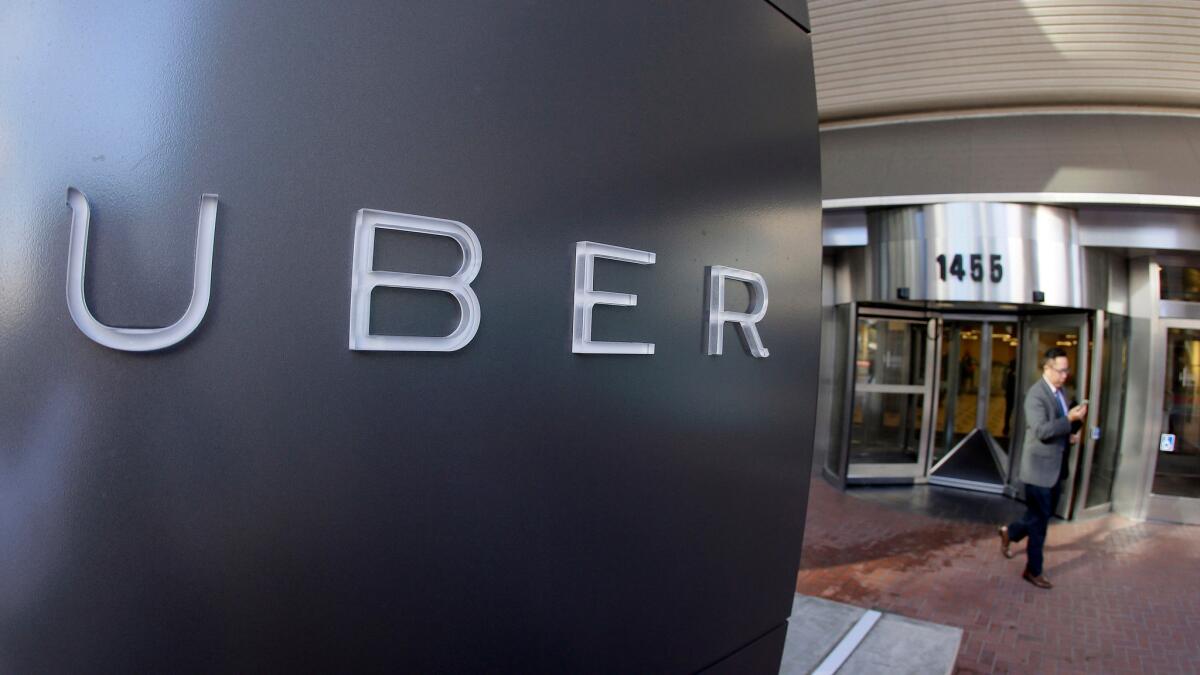Uber reportedly lost $1.3 billion in this year’s first half

- Share via
Uber may be gaining riders. It may be on the cutting edge of developing self-driving car technology.
But it’s a money-loser.
That’s according to details given by Gautam Gupta, Uber Technologies Inc.’s finance head, who in a recent conference call with Uber investors said the ride-hailing giant lost at least $1.27 billion during the first half of this year.
In a report Thursday, Bloomberg cited “people familiar with the matter” as saying Gupta gave the money-losing score last week as part of an update that the privately held San Francisco company gives to its investors and shareholders every three months.
According to those sources, Uber lost about $520 million before interest, taxes, depreciation and amortization during the first quarter of the year, and its second-quarter losses ballooned to more than $750 million. The second-quarter losses were said to include $100 million from Uber’s operations in the United States.
The first-half losses suggest Uber is potentially on a pace to surpass the more than $2 billion the company is said to have lost in 2015. Altogether, Uber reportedly has lost a minimum of $4 billion in its seven years of existence.
Gupta reportedly told Uber investors that the biggest source of the company’s losses is subsidies its pays its drivers.
Uber didn’t immediately respond to a request for comment on the reported losses.
On the bright side for Uber were big quarter-over-quarter gains in bookings and revenue during the first half of the year. Uber said bookings went up from $3.8 billion in the first quarter to more than $5 billion in April through June. Revenue also climbed from $960 million in the first quarter to $1.1 billion in the second quarter, a gain of about 18%.
It’s possible that Uber could see losses slow down through the rest of the year. The company recently pulled out of the ride-hailing market in China, where it was losing money, in exchange for a 17.5% stake in and a $1-billion investment from Chinese ride-sharing leader Didi Chuxing.
Uber’s investors include investment banks, such as Goldman Sachs and Fidelity Investments, and venture capital firms like Menlo Ventures and Benchmark Capital. Uber has also taken in a $200-million investment from Luxembourg-based LetterOne, an investment firm headed up by Russian billionaire Mikhail Fridman, and in June received $3.5 billion from the Saudi Arabian Public Investment Fund.
Crum writes for the Mercury News/McClatchy.
ALSO
Weedmaps — a Yelp for pot — is riddled with suspicious reviews
Uber drivers’ new option: Start a retirement account through the app
How Kobe Bryant plans to leverage his global appeal and marketing savvy as a tech investor





